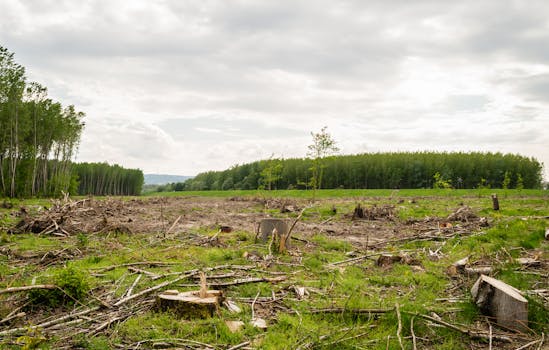
Understanding Climate Change

Climate change refers to significant changes in global temperatures and weather patterns over time. While climate change is a natural phenomenon, scientific evidence reveals that human activities, particularly the burning of fossil fuels, have accelerated the process, leading to severe ecological consequences.
Effects on Biodiversity

One of the most alarming impacts of climate change is the threat it poses to biodiversity. Many species are struggling to adapt to rapidly changing environments, resulting in shifts in population dynamics, migration patterns, and even extinction. For instance, warmer temperatures are driving polar bears to seek food closer to human settlements, increasing human-wildlife conflicts.
Furthermore, coral reefs, which support a vast array of marine life, are experiencing bleaching events due to rising sea temperatures. This not only affects marine biodiversity but also the livelihoods of communities that depend on these ecosystems for food and tourism.
Habitat Destruction

Climate change exacerbates habitat destruction through phenomena such as deforestation, ocean acidification, and desertification. As temperatures rise, ecosystems such as forests, wetlands, and grasslands are under threat. For instance, increased frequency and intensity of wildfires, driven by hotter, drier conditions, lead to the destruction of vast forest areas.
Moreover, the melting of polar ice caps not only threatens marine habitats but also contributes to rising sea levels, which inundate coastal ecosystems. These changes disrupt the delicate balance of ecosystems, leading to loss of species and altered food webs.
Impact on Ecosystem Services

Ecosystems provide essential services that support human life, including clean water, air purification, pollination of crops, and climate regulation. Climate change disrupts these services, posing risks to food security and human health. For example, changing weather patterns can affect crop yields, leading to food shortages and increased prices.
The loss of pollinators, driven by habitat loss and climate change, threatens agricultural productivity, which is vital for sustaining the growing global population. Maintaining healthy ecosystems is crucial for ensuring that these services continue to benefit humanity.
Conclusion

The impact of climate change on global ecosystems is profound and far-reaching. Addressing these challenges requires urgent global action to mitigate climate change and protect biodiversity. By fostering sustainable practices, raising awareness, and promoting conservation efforts, we can work towards a healthier planet for future generations.






